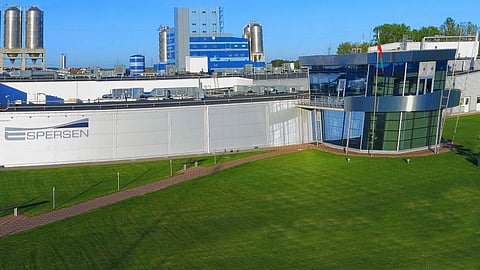"Our colleagues in Klaipeda have played an integral role in Espersen's journey for 21 years, and we are deeply grateful for their contributions," CEO Tino Bendix said.
Photo: Espersen LinkedIn page.
Espersen announces sale of processing plant to be closed in Lithuania
Just two weeks ago, Espersen announced it would close its plant in Klaipeda, Lithuania, due to excess capacity. Now, the Danish value-added producer has communicated that it has reached an agreement to sell it to Atlas Premium, a Latvian-based, Icelandic-managed, high-tech private label arctic whitefish processor and a partner of the Hofseth Group.
At the time of the closure announcement, Espersen said the decision had been difficult to make, especially concerning employees at the Klaipeda primary production plant, whom the company's CEO, Tino Bendix, said had played "an integral role in Espersen's journey for 21 years," and whose future then remained uncertain.
Therefore, this sale brings positive news for the processing plant employees since, according to the joint press release from Espersen and Atlas Premium, the workforce will continue their employment under the new ownership.
The best possible outcome
As mentioned above, the decision to close the Lithuanian plant next summer was due to Espersen's excess capacity in Europe. Aiming to achieve a more agile and cost-effective operation, the company was going to transfer Klaipeda's production to its high-capacity plant in Koszalin, Poland, and, although there was a possibility that some of the Lithuanian employees might find job opportunities there, this was not confirmed.
However, opportunity can come when least expected, and that seems to be the case as the acquisition has finally become a win-win for both companies and the workers.
Currently operating in Latvia, Atlas Premium had been planning to expand by constructing a new facility. Thus, upon learning of Espersen's closure, it initiated discussions that have now culminated in this successful acquisition.
"I am extremely pleased about this sale to Atlas Premium – it is the best possible outcome for our team members," said Espersen CEO Tino Bendix. "While Atlas Premium will adapt production to its own needs, our employees will be able to continue with the new company. Many of them have worked together for 15 to 20 years."
Sighvatur Bjarnason, CEO of Atlas Premium, was equally satisfied. "We are excited about the opportunity to acquire a fully operational plant with a highly skilled and experienced team. We were preparing to build a new facility in Latvia, but this acquisition will significantly accelerate our timeline," he said.
A new chapter for Atlas Premium
Specializing in premium quality loins and portions packaged in individual vacuum packaging (IVP) and modified atmosphere packaging (MAP) for retailers on both sides of the Atlantic, Atlas Premium is, as mentioned above, a processor of private label whitefish products for the retail market.
Its business model is based on combining experienced Icelandic management with the latest technologies, the highest quality standards, and - so far - a skilled Latvian workforce, enabling it to offer a fast, flexible, and personalized service to its customers worldwide.
Following this acquisition - the deal is scheduled to close on June 30, 2025 - the Klaipeda plant, built specifically for seafood production, will enable Atlas Premium to reduce production costs while maintaining its commitment to quality and service, something the company said is "particularly valuable in today's challenging market conditions."
The new owner's CEO, Sighvatur Bjarnason, thanked Tino Bendix and the Espersen team for their proactive approach and help in overcoming challenges throughout the transition process.
"This marks an exciting new chapter for Atlas Premium," he said. "We plan to develop production in Klaipeda in close cooperation with our Norwegian partners, the Hofseth Group. We already know the factory and the team well, and we are confident in our potential for growth."
Recently, also in Lithuania and despite geopolitical uncertainty, the Vičiūnai Group also announced the construction of one of Europe's largest salmon processing plants. Located in Plungė, the company described the project as its largest investment to date, EUR 100 million. With it, the seafood processing giant aims to rank among the top five largest processors of salmon and salmonids in Europe.


